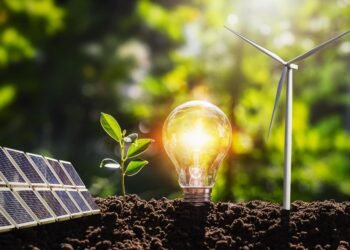WaterAid, a UK international non-governmental organization dedicated to the provision of safe domestic water, sanitation and hygiene education, has been facilitating the development of communication skills for climate change issues in the face of the emerging threats of COVID-19 pandemic.
At a two-day capacity building workshop for government actors, policy makers, environmentalists and journalists, among others, in Accra, speakers emphasized the need for the Government to allocate more domestic resources to climate change communication.
On the seriousness of the effects of climate change, Dr. Robert Manteaw, a Research Fellow of the Legon-based Centre for Climate Change and Sustainability noted that the effects of climate change are felt everywhere and need not to be ignored. He indicated that the environment has become more vulnerable to the effect of climate change in the wake of the COVID-19 pandemic, and there is the need to pick up lessons from the effects of the pandemic on the human society.
“We need to be prepared to communicate well, especially on issues of climate change. COVID-19 has taught us a lot. There is no need to wait till something happens before we tackle issue of climate change.
“If people don’t see the effects of climate change, ask them about the rainfall, weather changes in the rural areas. We used to have the vultures on the refuse dumps in the cities. Have you asked where the vultures are?”
Dr. Robert Manteaw
He underscored the need for effective communication strategies to let people own the messages and actions for the phenomenon so that they could take effective action to preserve lives and the environment.
Dr Manteaw asked communicators to excite their audiences about the subject of climate change, and advised investors to take advantage of business opportunities emerging out of climate change, tap into its economic benefits.
“Waste is an economic resource in transition, waste it wealth,” he said, adding “you call it shit, I call it money.”
Dr Antwi-Bosiako Amoah, Deputy Director, Climate Change, of the Environmental Protection Agency (EPA) announced climate change issue have been incorporated in the curriculum of basic schools and Junior High Schools would soon have theirs. He took participants through Ghana’s Action on Climate Change, the National Climate Change Policy and Ghana’s National Determined Condition on Climate Change.
Dr. Jesse Coffie Danku, Acting Country Director of WaterAid Ghana, announced that the outcome of the workshop was expected to help in communicating “water, sanitation and hygiene (WASH) issues” affecting climate change.
At the 2021 Climate Adaptation webinar hosted by the Dutch Prime Minister Mark Rutte which ended on the 26th January, 2021, the Executive Director for Green Africa Youth Organization (GAYO), Joshua Amponsem also called on global leaders to empower the youth on climate change adaptation by introducing mandatory climate change education in schools.
The objectives of the webinar included enhancing ambition on adaptation where Joshua Amponsem emphasized the need to increase investments for youth in Global South where adaptation is needed the most.
“I speak to you today, on behalf of the hundreds of thousands of young people brought together by the Global Commission on Adaptation to produce a ‘Youth Call to Action’ because while we must continue to accelerate progress towards a net zero world, young people, especially young women and those from indigenous communities, are already feeling the impacts of climate change.
“Our ‘Call to Action’ shows we want to play our part in building a resilient future, but we need your support to; empower us through mandatory climate change education, equip us with skills and training for green jobs that focuses on adaptation and finance us as we develop innovative solutions to adapt for our future”
Joshua Amponsem
Read Also: Pandemic, climate change threaten global stability- WEF




















